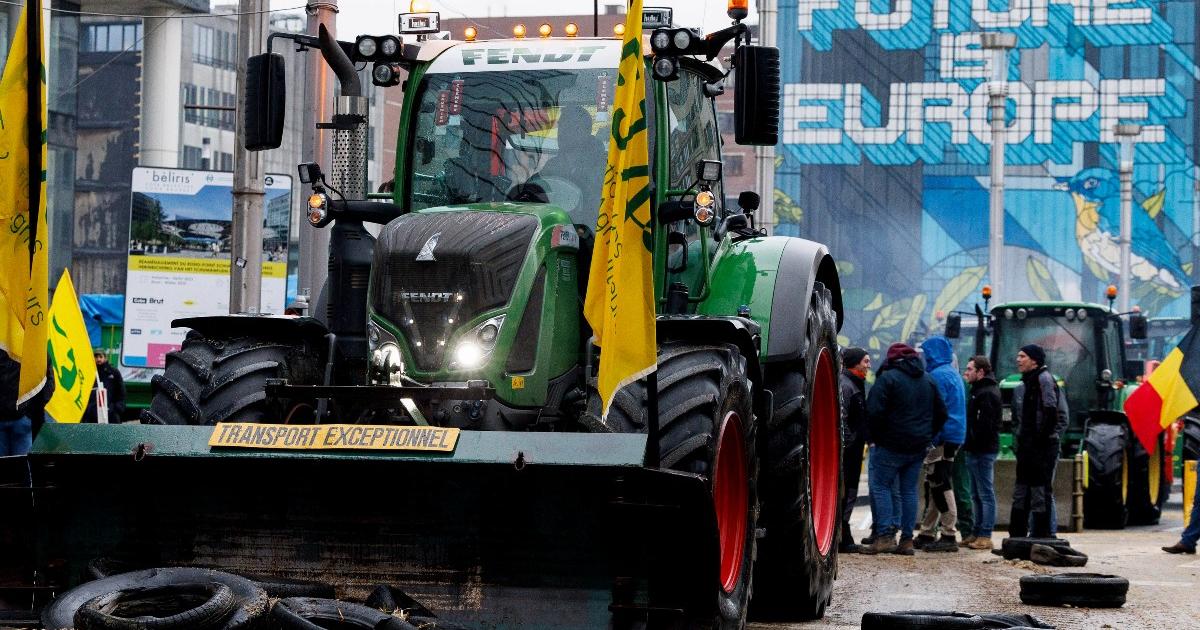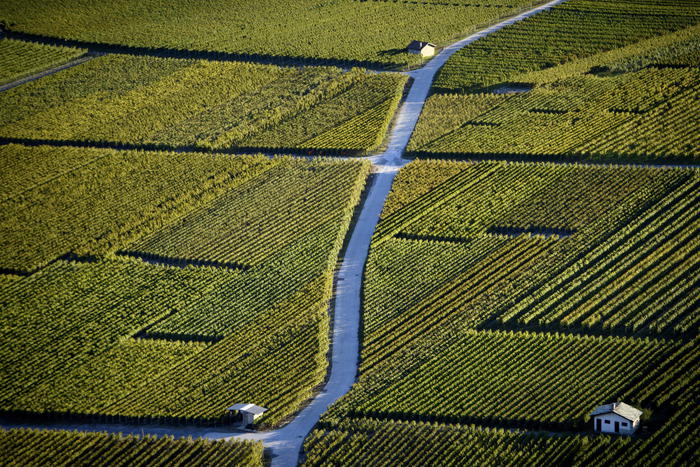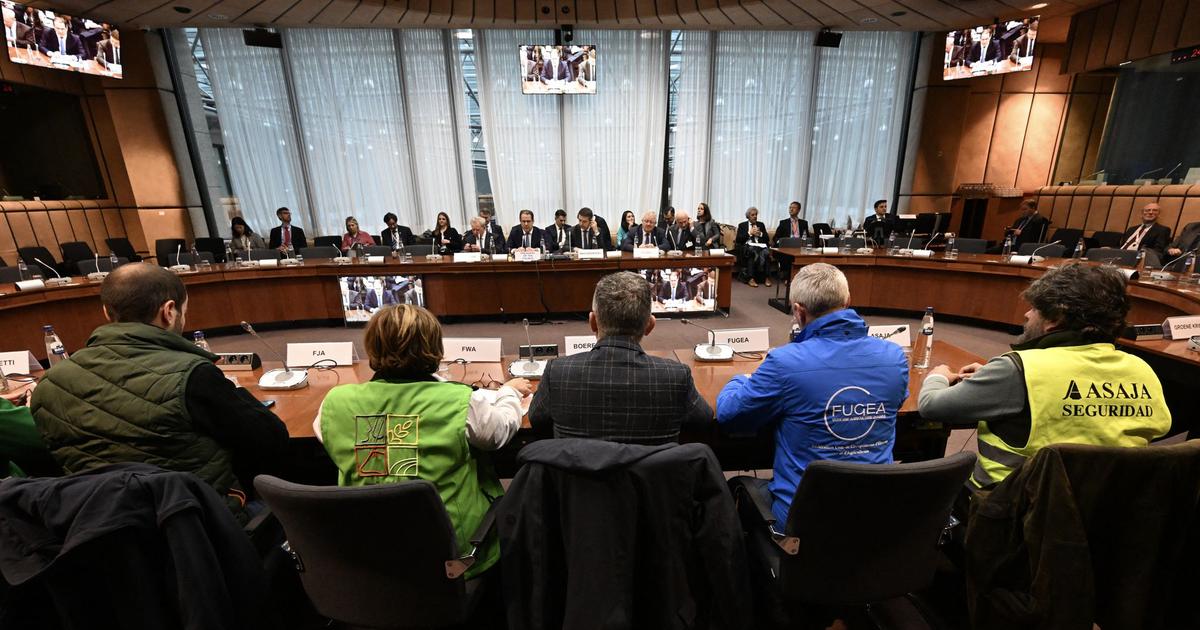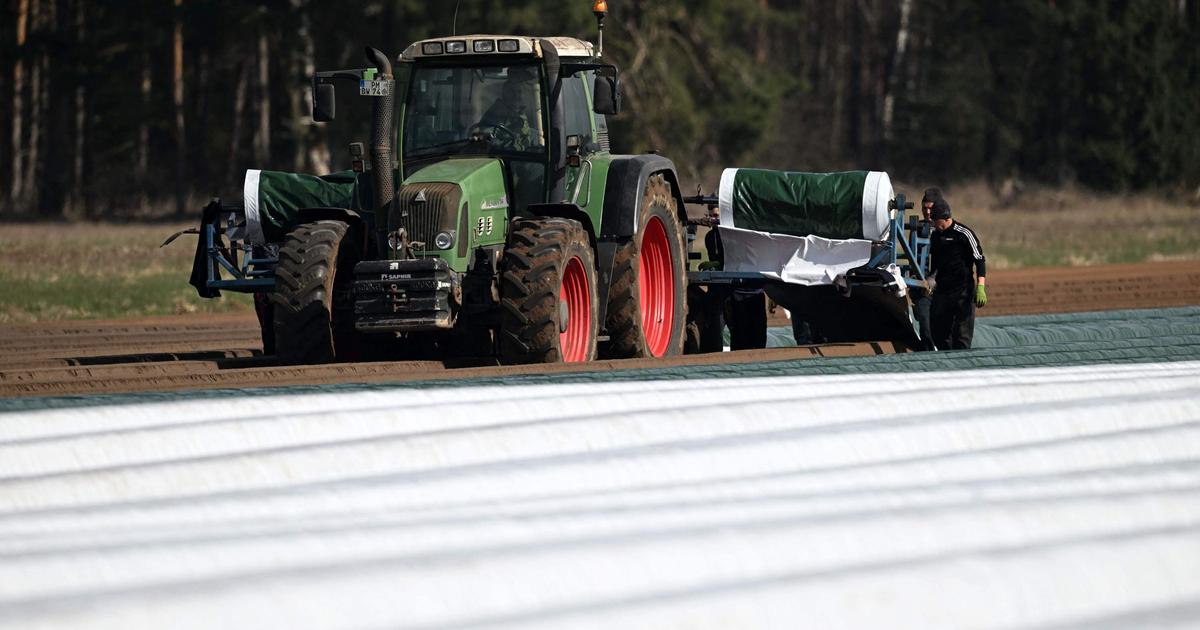For the left and environmentalists, it is a disaster.
For the right and the center, it is a success.
The European Parliament, meeting in Strasbourg, adopted the budget for the Common Agricultural Policy (CAP) on Tuesday evening, after heated debates.
This new version is a key step for European climate objectives.
While MEPs are overwhelmingly in favor of the three texts ruling on the amount allocated to each country of the Union to support farmers, many oppositions remain.
The left and the French ecologists in particular rejected en bloc the changes made, deeming them insufficient for the protection of the environment.
Explanations.
What is the CAP?
The CAP is a major axis of European policy.
Provided for in the Treaty of Rome and entered into force in 1962, its objective is to regulate prices and guarantee the quantity and quality of European raw materials.
"It is one of the pillars of the European community", summarizes Patrick Martin-Genier, essayist and specialist in European governance.
Result: a very large part of the political class reacted Tuesday evening to the announcement of the election.
With this vote, MEPs agree on the payments of aid from the European Union (EU) to farmers, initially, and the 27 Member States, secondly.
The new CAP is notably endowed with 387 billion euros - 6 more than the last version, and one third of the EU's multiannual budget.
270 billion in aid will be paid directly to farmers.
The rest will be distributed at the discretion of each government, in what are called "strategic plans", to be submitted to the European Union.
Read also Agriculture in Île-de-France: the obstacle course of a young breeder to find land
The CAP has many implications for the peoples of Europe.
Many farmers live directly from the aid allocated: "Without it, we would work at a loss or we would increase prices", explains Michel Picard, producer of wheat, barley and rapeseed, on a 50 hectare farm.
Very agricultural, France is the first beneficiary of the CAP - and will remain so in 2023 - with 18% of allocations, or 66.2 billion euros.
Why is this a pivotal year?
More than a question of money, the CAP is also very important for the future of Europe.
This year, the challenge was above all to green agriculture, and the old continent.
The CAP must agree with the Green Pact, an investment plan, which must make Europe "the first climate neutral continent", according to the European Commission.
Yet agriculture is a key practice for the climate.
This is 19% of greenhouse gas emissions in France, the second most emitting sector after transport, according to the Ministry of Ecological Transition.
Certain agricultural practices degrade the soil.
But farmers sometimes feel like they are caught in the crossfire - doing better, while being regularly affected by natural disasters linked to global warming.
“Farmers are making a lot of efforts.
The multiplication of droughts and periods of frost complicates the profession and the injunctions to make greener are also difficult to implement
”
, summarizes Christiane Lambert, president of the FNSEA, the first French agricultural union.
What will change?
MEPs therefore had to deal with a climate emergency and strong demand from farmers, especially small structures, who receive much less aid than industrial production.
The result is a great novelty: 25% of payments will be backed by the implementation of more virtuous practices for the environment.
If the reform will not come into force until 2023, the FNSEA deplores a "lack of progressivity".
“We won't get there overnight.
There is a risk that farmers will be cut off by a quarter of their income, ”says Christiane Lambert.
For her part, Fabienne Keller, MEP Agir, from the LREM group, is satisfied with a good compromise: "We believe that it is a point of balance, a strong contribution to the Green Pact, which allows for the transition to be achieved. progressive ”.
On the side of environmentalists, the measure is considered largely insufficient: “We were told a revolutionary green deal, upsetting European legislation.
The new CAP is wrapped in green, but just on the surface, ”said Marie Toussaint, EELV MP.
Read also Common agricultural policy: fed up with "small farms"
At issue: virtuous practices would not be ambitious enough: “In some cases, it is sufficient to plant hedges.
This does not imply a change of model.
And it's open-bar for the remaining 75%, ”concludes the MEP.
Finally, the CAP vote brings back the left-right divide in France, as the presidential election approaches.
The first - from France rebellious to EELV - almost all voted against, also judging that it was necessary to give more money to small farmers and peasants.
The second - the center, The Republicans - spoke in favor of this new text, with the support, in number, of the extreme right, yet accustomed to abstain on European issues.
One last proof, if necessary, of the importance of this common policy.


/cloudfront-eu-central-1.images.arcpublishing.com/prisa/TJIZLZ7VXOV4MBYNPTH2DNQ7CI.jpg)






